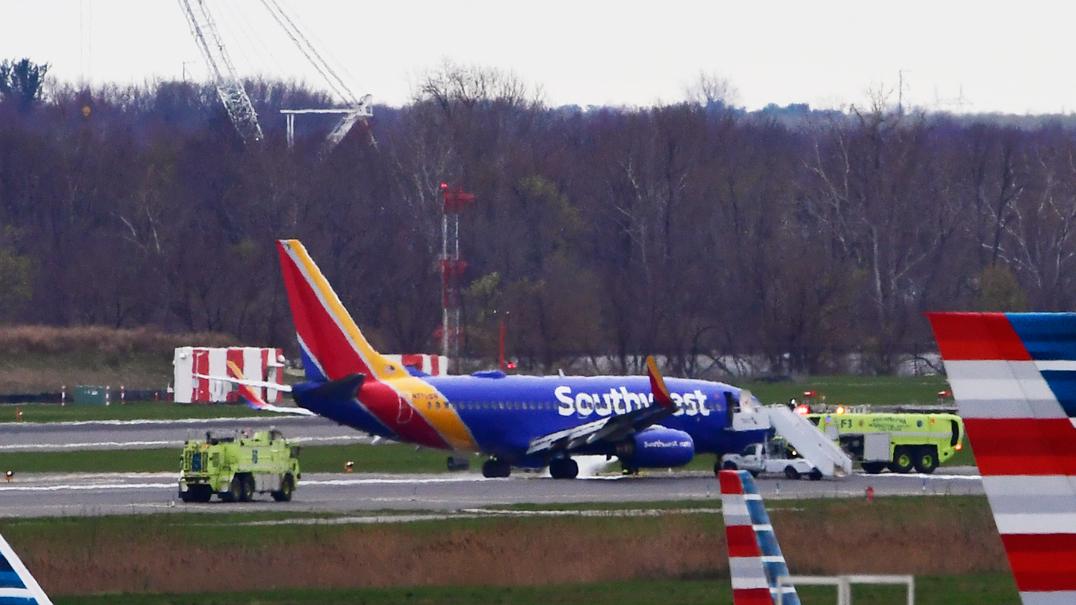Southwest's profits plummet amid Boeing Max grounding, mechanics dispute
Southwest Airlines topped Wall Street’s profit expectations for the first quarter, despite the carrier canceling thousands of flights in the period due to a dispute with its mechanic's union and the grounding of Boeing’s 737 Max jets.
Overall, the Dallas-based carrier canceled more than 10,000 flights in the three months through March, leading to a total profit loss of nearly $150 million and resulting in a year-over-year decrease in available seat per mile – a key metric of capacity for airlines.
| Ticker | Security | Last | Change | Change % |
|---|---|---|---|---|
| LUV | SOUTHWEST AIRLINES CO. | 54.25 | +1.75 | +3.33% |
Southwest previously warned customers the interruptions from the halt in operations of the Max fleet would continue until Aug. 5. CEO Gary Kelly on Thursday said the timeline for the return of the aircraft remains uncertain. Among the U.S. domestic carriers, Southwest operates the largest number of Max jets.
“Our goal is to stabilize and protect the integrity of our flight schedule, while providing dependability and reliability for customers booking their summer travel,” he said in a statement. “Flight cancellations are expected to drive unit cost pressure for the duration of the MAX groundings.”
Companywide, revenue rose 4.1 percent to $5.2 billion, roughly in line with Wall Street projections. Meanwhile, profits plummeted 16.4 percent to $387 million, or 70 cents per share, higher than analysts expected.
Revenue per available seat mile (RASM), a metric that reflects how much a carrier earns per passenger, rose 2.7 percent despite the headwinds that resulted in a loss of revenue of more than $200 million. Southwest expects RASM to rise as much as 7.5 percent in the second quarter, indicating a healthy outlook despite the continued grounding of the Max jet.
The carrier launched service to Hawaii earlier this year, a route that Southwest estimates will increase its operating costs per passenger by as much as 12.5 percent over the next three months.
Overall for 2019, the company expects cost per available seat mile (CASM) to rise as much as 6.5 percent. Should it not receive any new deliveries of the Max jet in 2019, that number would be "dramatically lower," Kelly said.
Southwest anticipates closing the year with a fleet of 775 jets, but the Max grounding could impact delivery schedules. Analysts previously predicted the carrier could delay the retirement of some 737-700 planes if Boeing does not resolve the Max issue in the coming months.
"From an operational perspective, we've already planned retirements and that would imply that capacity goes down from here. Well, we certainly don't want that. And it would be a lot of work for us to go in and unwind our retirement plan," Kelly told investors.
He also told CNBC that, while the carrier currently only flies Boeing planes, that could change. Southwest has historically flown a singular model to cut down on maintenance costs.
CLICK HERE TO GET THE FOX BUSINESS APP
Fuel prices dropped slightly year-over-year to $2.05 per gallon. The company expects to eat a greater margin of the prices due to the absence of the Max fleet, Southwest's most fuel-efficient jet.
In the quarter, the carrier repurchased 9.4 million shares as a result of a $500 million buyback program that finished in April. It has $850 million left for stock repurchases under the current authorization.




















